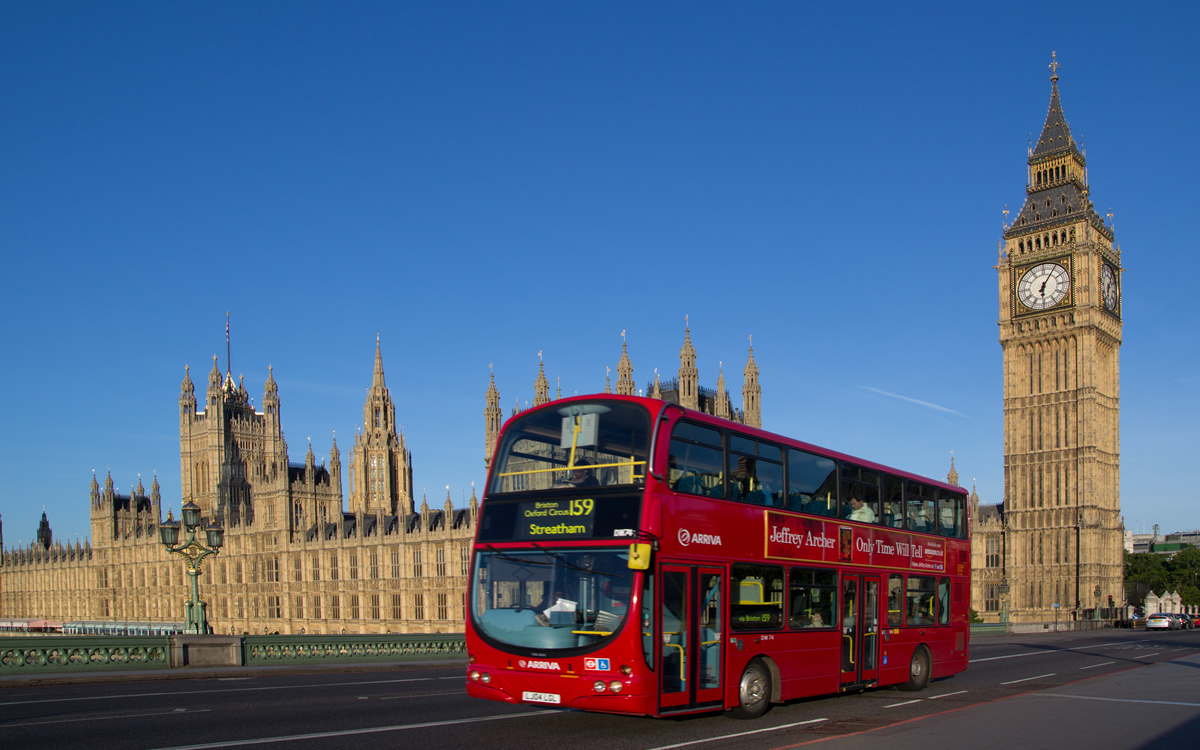World
Out in the World: LGBTQ news from Europe and Asia
Marriage equality advances in Liechtenstein, Thailand

UNITED KINGDOM

BY ERIN REED | Following a recent decision in England by the National Health Service to stop prescribing puberty blockers for transgender youth, former U.K. Prime Minister Liz Truss introduced a bill that would outlaw gender-affirming care for trans youth. The bill would also eliminate any recognition of social transition and would define sex to exclude trans individuals in the Equality Act. Currently, trans youth can still access gender-affirming care through private clinics. However, Truss’ bill ran into trouble on Friday when, instead of being debated, MPs spent hours deliberating over ferrets and pet names, exhausting the available time and preventing the bill from being heard.
As of this week, the National Health Service in England has declared that it will no longer permit trans youth to receive puberty blockers for gender dysphoria. Although the announcement sparked significant public backlash, its practical impact was somewhat mitigated by the extreme waitlist for care, which exceeds five years. Only a hundred trans youth had been prescribed blockers of the thousands waiting for an appointment. Importantly, the decision does not affect care through clinical research trials and does not affect private clinics — a route many parents had already pursued due to the surging wait times at the limited number of NHS clinics providing care.
Truss introduced a bill aimed at curbing that latter route of obtaining care. The proposed legislation would criminalize the prescription of gender-affirming care to trans youth. It seeks to prevent “the recognition of gender inconsistency in children,” which is defined as “referring to a child with language that is inconsistent with their sex” and “treating a child in a manner that is inconsistent with their sex.” However, the bill does not specify how boys and girls should be treated in accordance with the law. Additionally, it proposes amendments to the Equality Act to define sex to exclude trans individuals and end protections in bathrooms and other similar spaces.
See these lines from the bill here:

However, when the time arrived to debate bills, MPs diverted their attention to hours of discussions about ferrets and pet animal names within the context of an animal welfare bill. In one notable interaction, Labour MP Sarah Champion addressed Labour MP Maria Eagle, remarking humorously on the frequent mentions of ferrets:
Champion: “I am very interested in my honorable friend’s, well, key mention of ferrets at every opportunity in this debate. I’d like to put on record that my brother had a ferret called Oscar.”
(Laughter)
Eagle: “Well she has that now on the record. I don’t know really what else to say about that except that I’m sure that Oscar brought her brother great joy, and that’s what pets do, and I’m sure there are many other ferret owners who might attest to the same thing.”
You can watch the exchange here:
In another exchange, even some conservatives appeared to be in on it, such as MP Mark Spencer, who spoke at length listing off of many pets that had been named and put on the record.
Spencer: “I am confident that Members of all parties will agree that animals have been of great support to individuals and families, particularly during COVID-19, when my pets were certainly of great support to me. Pets often help to keep people sane when they are under pressure in their everyday pursuits, so it would be remiss of me not to put on the record the names of my three dogs, Tessa, Barney and Maisie, and the name of my cat, Parsnip. There has been a proud tradition this morning of mentioning various pets, including: Harry, George, Henry, Bruce, Snowy, Maisie, Scamp, Becky 1, Becky 2, Tiny, Tilly, Pippin, Kenneth, Roger, Poppy, Juno, Lucky, Lulu, Brooke, Lucy, Marcus and Toby, who are the dogs; and not forgetting Perdita, Nala, Colin, who is sadly no longer with us, Frank, two Smudges, Attlee, Orna, Hetty, Stanley, Mia Cat, Sue, Sulekha, Cassio, Othello, Clapton, Tigger, who is sadly no longer with us, and Pixie, who are the cats.”
The lengthy exchanges on pet names and ferrets ran the time out, and as such, the bill targeting trans people could not be heard. The lengthy discussion, which has since been referred to as a filibuster, echoes filibusters that have occurred in the U.S. to kill similar legislation, including recently in West Virginia on a bill that also would have defined sex in an identical way.
The exchanges provided a ray of hope for trans residents in England, which has been beset by anti-trans politics in recent years. Likewise, it was a sign that the Labour Party, which has previously been seen as “backsliding” on trans rights, has not completely abandoned its transgender constituents. Though the bill is not officially dead, it has been placed at the bottom of the priority list for March 22, meaning it almost certainly will not be debated, with government sources calling the bill “unworkable.”
For those who advocate for trans rights, however, the ferret has become “an overnight symbol of trans resistance” and a sign that anti-trans politics may be reaching their limit even in the U.K.
IRELAND

BY ROB SALERNO | The Irish people delivered a major rebuke to the political establishment by voting overwhelmingly against a pair of constitutional referendums that had been endorsed by all parties which would have amended language in the constitution that says a woman’s place is in the home, and that families are based on marriage.
The government had held the referendum on International Women’s Day, March 8, in a symbolic move, and turnout was measured at 44.4 percent. Results were announced the following day.
Ireland’s gay prime minister, Leo Varadkar, accepted defeat Saturday.
“It was our responsibility to convince the majority of people to vote ‘yes’ and we clearly failed to do so,” Varadkar said.
The first question, which was defeated 67 percent to 33 percent, asked voters to add the words “whether founded on marriage or on other durable relationships,” to the constitution’s definition of “family,” in order to be more inclusive of diverse family types.
The second question, which was defeated by a similar margin, as voters to delete a clause that says “the State recognizes that by her life within the home, woman gives to the State a support without which the common good cannot be achieved. The State shall, therefore, endeavor to ensure that mothers shall not be obliged by economic necessity to engage in labor to the neglect of their duties in the home.”
Critics say the language promotes sexist gender stereotypes. The revised language would have used gender-neutral language to recognize “the provision of care, by members of a family to one another.”
Advocacy group LGBTQ Ireland had called for people to vote “yes” to both referendums, “so all children and families, including LGBTQ families, are recognized equally in the constitution.”
But a persuasive “no” campaign had arisen that alleged the revision would have struck women’s privileges and rights. Forces aligned against the referendum included some progressive and feminist groups that alleged the proposed language was unclear and lacked consultation.
Irish voters have in recent years approved a number of progressive reforms to their constitution, including streamlining the divorce process in 2019, legalizing abortion and decriminalizing blasphemy in 2018, and legalizing same-sex marriage in 2015.
LIECHTENSTEIN

BY ROB SALERNO | The tiny principality of Liechtenstein got one step closer to full equality for LGBTQ people as its parliament approved a bill to legalize same-sex marriage with a 24-1 vote, bringing a years-long process nearly to a close.
Local LGBTQ advocacy group FLAY expressed gratitude to members of Landtag, the Liechtenstein parliament, for advancing the law last week.
“Thank you for 24x ‘yes’ in the Landtag,” the group posted to its Facebook page.
“FLay the association for the queer community in Liechtenstein is very happy that 24 out of 25 deputies in parliament voted in favor on today’s first reading. Keeping in mind the completely blocked situation only 3 years ago, the denial of our government for participating any public discussion, we can be more than proud and happy on our successful steps towards the legitimation of the civil marriage for all,” Stefan Marxer, a FLay board member told the Washington Blade in an email.
The marriage bill is expected to pass second reading before the summer parliamentary break, and come into effect by Jan. 1, 2025, unless a referendum is called on the issue.
The tiny country of about 40,000 people, about the size of D.C., has made major progress on advancing LGBTQ rights in the last decade, though the International Gay and Lesbian Association-Europe ranked the country 38th among 49 European countries in its annual survey of LGBTQ rights on the continent last year.
Liechtenstein has allowed same-sex couples to form registered partnerships with limited rights since 2011. The registered partnership law was subject to a referendum after gay rights opponents collected more than 1,000 signatures demanding it. The law was approved by voters 69 percent to 31 percent.
A same-sex couple had sued the state seeking the right to marriage in 2017, but ultimately lost when the state court ruled that the ban on same-sex marriage was not unconstitutional. However, the court did find that the law banning same-sex couples from adopting was unconstitutional and ordered the country to amend the law. It eventually did so last year.
Discussion of marriage equality began in earnest in Liechtenstein after neighboring Switzerland passed its same-sex marriage law in its parliament in 2020.
One obstacle was the prince, who wields significant executive authority in Liechtenstein compared to other European monarchies. In 2021, Prince Hans-Adam II said that while he supported same-sex marriage, he would not support adoption rights. That obstacle seemed to disappear when the state court ordered the government to legalize full adoption rights. By 2022, Hans-Adam’s son Alois, who governs as regent, told a magazine that same-sex marriage was “not a problem.”
The Catholic Church had also intervened, with former Archbishop of Liechtenstein Wolfgang Haas leading a campaign against the bill and cancelling a traditional service at the opening of last year’s Parliament in protest. Haas retired last autumn.
Despite broad agreement among legislators, the same-sex marriage law has taken a slow path through Parliament. In November 2022, Parliament voted 23-2 asking the government to bring forward a same-sex marriage bill. The government held a three-month-long public consultation on same-sex marriage last year before putting the bill on the agenda for Parliament’s March 2024 meeting.
Under the marriage bill, the country will stop registering new partnerships, and people in partnerships will have the option of converting them to marriages or keeping them as they are. All other rights will be equalized.
Liechtenstein is the last German-speaking country to legalize same-sex marriage. Around the world, 37 countries have legalized same-sex marriage, including 21 countries in Europe. The most recent country to legalize same-sex marriage is Greece, and Thailand is expected to pass a same-sex marriage law later this year.
JAPAN

BY ROB SALERNO | Two courts ruled this past Thursday that Japan’s ban on same-sex marriage is unconstitutional, increasing pressure on the government to legalize it.
District courts have been weighing same-sex marriage since several coordinated cases were filed across the country in 2019. Along with Thursday’s ruling from the Tokyo District Court, five district courts have ruled that the ban on same-sex marriage was unconstitutional, while one court has upheld the ban. A seventh district court case was filed last month.
But on Thursday, the Sapporo High Court delivered the first ruling on same-sex marriage at the appellate level, and same-sex couples won there, too.
So far, all courts have dismissed claims for monetary compensation.
It’s likely that all of the cases will end up at the Supreme Court.
In a statement released after the ruling, the plaintiffs’ lawyers called on the government to act swiftly to protect their rights.
“I would like to reiterate that this shows that there is no time left for legal reform. The government should take seriously this judgment that found this provision to be unconstitutional … and promptly amend the law to allow marriage between same-sex couples,” the statement says.
Under Japan’s legal system, courts rarely invalidate or amend laws that are ruled unconstitutional, leaving that to the legislature.
But Japan’s national government has long been cold to LGBTQ rights. Last year, queer activists had hoped that the government would finally pass a long-demanded anti-discrimination bill, but by the time it was put before the legislature, it had been watered down to a bill that only calls on the government to promote understanding of LGBTQ people.
At the local level, queer activists have seen greater success. Twenty-nine of Japan’s 47 prefectures, as well as hundreds of municipalities, have enacted partnership registries for same-sex couples that at least afford some limited rights.
THAILAND

BY ROB SALERNO | Same-sex marriage could soon be a reality in the Southeast Asian country, as a bill to legalize cleared its first test in the legislature Thursday.
A committee set up by the House of Representatives to examine the bill approved it, setting it up for a final vote in the House on March 27. After that, it will need to be approved by the Senate, which is dominated by appointees of the former military junta that ruled the country until 2017. It is expected that the bill will pass into law by the end of the year.
The proposed bill gives same-sex couples equal rights to married heterosexual couples, including in inheritance, tax rights and adoption.
Same-sex marriage and LGBTQ rights generally have become a major political issue in Thailand in recent years, with queer people becoming increasingly visible and demanding greater equality.
Parties promising to legalize same-sex marriage and promote LGBTQ rights were the major victors of last year’s election, although the leading party was controversially disqualified from forming a government due to its support for reforming laws that penalize disparaging the monarchy, which was deemed unconstitutional. Nevertheless, the parties that formed government agreed to pass a same-sex marriage law, and last December, the house voted overwhelmingly to approve in principle a series of draft marriage bills.
The new government has also signaled that it will soon introduce a bill to facilitate legal gender change for trans people, and has begun a campaign to provide free HIV medication as an effort to eliminate HIV transmission by 2030.
Reporting by Erin Reed and Rob Salerno
United Nations
UN Human Rights Council extends LGBTQ rights expert’s mandate
29 countries voted for resolution

The U.N. Human Rights Council on Monday extended the mandate of the United Nations’ independent LGBTQ rights expert for another three years.
The resolution passed with 29 countries (Albania, Belgium, Bolivia, Brazil, Bulgaria, Chile, Colombia, Costa Rica, Cuba, Cyprus, the Czech Republic, the Dominican Republic, France, Georgia, Germany, Iceland, Japan, Kenya, the Marshall Islands, Mexico, the Netherlands, North Macedonia, South Korea, Romania, South Africa, Spain, Switzerland, Thailand, and Vietnam) voting for it and 15 countries (Algeria, Bangladesh, Burundi, China, Cote d’Ivoire, Democratic Republic of Congo, Ethiopia, Gambia, Indonesia, Kuwait, Malawi, Maldives, Morocco, Qatar, and Sudan) voted against it.
Benin, Ghana, and Kyrgyzstan abstained.
The U.S. in February withdrew from the Human Rights Council. The Trump-Pence administration in 2018 pulled the U.S. from it. The U.S. in 2021 regained a seat on the Human Rights Council.
Graeme Reid has been the UN’s independent LGBTQ rights expert since 2023. The South African activist, among other things, previously ran Human Rights Watch’s LGBT Rights Program.

South Africa National Assembly Speaker Thoko Didiza on June 17 swore in lesbian feminist Palomino Jama as a new MP.
Jama joins other LGBTQ legislators — including Public Works and Infrastructure Minister Dean Macpherson; Forestry, Fisheries and the Environment Minister Dion George; and Deputy Women, Youth, and Persons with Disabilities Minister, Steve Letsike.
Jama said she will work hard and excel as MP.
“What a great moment to be alive. Thank you youth of 1976, thank you Simon Nkoli, Phumi Mthetwa, Paddy Nhlaphos, Vanessa Ludwig, and others for what you did for the LGBTI people in the 80s and 90s. Lastly, for the fierce fist of the Jamas to always hit where it matters for the people of this country,” said Letsike.
Embrace Diversity Movement, a local LGBTQ organization, said Jama’s inauguration came at an appropriate time, during Pride month.
“Her swearing-in took place during a month of profound significance in June, which marks both international Pride Month and Youth Month in South Africa,” said the group. “Palomino is a seasoned queer activist and dedicated community builder with a distinguished record of leadership and service.”
“The EDM proudly supports Palomino in her deployment to parliament, her presence meaningfully advances youth and queer representation in public office,” added the Embrace Diversity Movement. “We are confident that she will serve the people of South Africa with integrity, courage, and distinction.”
South Africa is the only African country that constitutionally upholds LGBTQ rights. There are, however, still myriad challenges the LGBTQ community faces on a daily basis that range from physical attacks to online abuse.
Letsike in May faced a barrage of online attacks after she released a scathing statement against popular podcaster Macgyver “MacG” Mukwevho, who during a podcast episode in April insinuated that the reason behind popular socialite Minnie Dlamini’s “unsuccessful” relationships were probably due to the bad odor from her genitals.
Letsike, who viewed MacG’s comments as offensive, called for the podcaster to be summoned before parliament’s Portfolio Committee on Women, Youth, and Persons with Disabilities and criticized the local television station that aired the podcast.
X users and other social media subscribers bombarded Letsike with anti-lesbian comments. She, however, was unphased.
Letsike continues to face anti-lesbian comments, even though MacG apologized and the television station on which his podcast had aired cancelled its contract with him.
Israel
Activist recalls experience in Tel Aviv after Israel-Iran war began
Marty Rouse was part of Jewish Federations of North America Pride mission

A long-time activist who was in Israel last month when its war with Iran began has returned to D.C.
Marty Rouse traveled to Israel on June 6 with the Jewish Federations of North America. The 5-day mission ended the night before the annual Tel Aviv Pride parade was scheduled to take place.
Mission participants met with Israeli President Isaac Herzog and several LGBTQ activists in Tel Aviv and Jerusalem. They visited the Western Wall, the Nova Music Festival site, and Nir Oz, a kibbutz in southern Israel that is less than a mile from the country’s border with the Gaza Strip. Mission participants also visited Sderot, a city that is roughly a mile from the Hamas-controlled enclave, a veterans rehabilitation facility, a new LGBTQ health center and the Aguda: The Association for LGBTQ Equality in Israel in Tel Aviv.
Hamas militants on Oct. 7, 2023, killed upwards of 360 partygoers and kidnapped dozens more at the music festival that was taking place at a campground near Re’im, a kibbutz that is roughly 10 miles southwest of Nir Oz. The militants killed or took hostage nearly a quarter of Nir Oz’s residents. They also took control of Sderot’s police station.

Tel Aviv Deputy Mayor Chen Arieli spoke at the mission’s closing party that took place at the Sheraton Grand, a hotel that overlooks Tel Aviv’s beachfront, on June 12.
Rouse and other mission participants planned to stay in Tel Aviv for the Pride parade, which was scheduled to take place the following day. He and Gordie Nathan, another mission participant who lives in Palm Springs, Calif., had checked into a nearby hotel that was less expensive.
“We said our farewells,” recalled Rouse when he spoke with the Washington Blade in D.C. on June 24. “We went to our hotels, and we get the warning, and then all hell broke loose.”
Israel early on June 13 launched airstrikes against Iran that targeted the country’s nuclear and military facilities.
Rouse said mission organizers told him and other participants who remained in Tel Aviv to meet at the Sheraton Grand for breakfast and dinner — Israel’s airspace was closed in anticipation of an Iranian counterattack, and authorities cancelled the Pride parade.
He said he went to bomb shelters at least twice a night for three nights.
Israel’s Home Front Command during the war typically issued warnings about 10 minutes ahead of an anticipated Iranian missile attack. Sirens then sounded 90 seconds before an expected strike.
Rouse and Nathan walked to the Sheraton Grand on June 13 when the Home Front Command issued a 10-minute warning. They reached the hotel in a couple of minutes, and staff directed them to the bomb shelter.
“You know to walk slowly, everything’s fine,” recalled Rouse. “You get 10 minutes, so everything was fine when the alarm goes off.”
Rouse described the Sheraton Grand shelter as “well lit” with WiFi, a television, and air conditioning. He was watching an Israeli television station’s live coverage of the Iranian missile attack when he saw one hit an apartment building in the Tel Aviv suburb of Ramat Gan.
A 74-year-old woman died and her boyfriend was seriously injured.
“I go over to look at the TV, just to watch,” recalled Rouse. “All of a sudden, you watch, and you see one bomb go and land and explode in Tel Aviv on TV. It landed and blew up.”
“I was like, okay, this is real, and so that was scary,” he added.
Rouse said the bomb shelter in the hotel where he and Nathan were staying after the mission ended was far less comfortable.
“It was dark. It was humid. It was hot. It was very uncomfortable,” said Rouse. “You really felt alone.”

Rouse and nearly everyone else on the mission who were in Tel Aviv when the war began left Israel on June 15. They boarded buses that took them to the Jordanian capital of Amman, which is a roughly 2 1/2-hour drive from Tel Aviv through the West Bank.
Rouse described the trip as “like a field trip” until they drove across the Jordan River and arrived at the Jordanian border crossing.
“You walk into this room, and instead of being in a well air-conditioned airport, you’re in this hot, humid, small place in the middle of the desert, packed with people, and those big, large, loud fans and pictures of military people on the walls,” he said. “It was almost like a Casablanca kind of feeling.”
Rouse said Jordanian authorities brought mission participants through customs in groups of 10. A Jewish Federations of North America liaison from Amman who previously worked as a tour guide for A Wider Bridge — a group that “advocates for justice, counters LGBTQphobia, and fights antisemitism and other forms of hatred” — went “behind closed doors” to ensure everyone was able to enter the country.
“It took a really long time,” Rouse told the Blade.

Mission participants arrived in Amman a short time later. They checked into their hotel and then had dinner at a restaurant.
“Now we feel like we’re safe and we’re in Amman,” recalled Rouse. “We’re sitting outside having a beautiful dinner.”
Iranian missiles passed over Amman shortly after Rouse and the other mission participants had begun to eat their dessert. They went inside the restaurant, and waited a few minutes before they boarded busses that brought them back to their hotel.
“No one was openly freaking out, which I was surprised by,” said Rouse.
The group was scheduled to fly from Amman to Cairo at 11 p.m. local time (4 p.m. ET) on June 16. They visited Jerash, an ancient city north of Amman, before their flight left Jordan.
“[The Jerash trip] actually took our minds off of everything,” said Rouse.
A Jewish Federations of North America contact met Rouse and the other mission participants at Cairo’s airport once their flight landed. Rouse arrived at JFK Airport in New York on June 17.
Trump-announced ceasefire ended 12-day war
President Donald Trump on June 23 announced a ceasefire that ended the 12-day war.
The U.S. three days earlier launched airstrikes that struck three Iranian nuclear sites. The ceasefire took effect hours after Iran launched missiles at a U.S. military base in Qatar.
Iran said the war killed more than 900 people in the country.
The Associated Press notes Iranian missiles killed 28 people in Israel. One of them destroyed Tel Aviv’s last gay bar on June 16.
The war took place less than two years after Oct. 7.
The Israeli government says Hamas militants on Oct. 7, 2023, killed roughly 1,200 people on that day when it launched its surprise attack on the country. The militants also kidnapped more than 200 people.
The Hamas-controlled Gaza Health Ministry says Israeli forces have killed nearly 55,000 people in the enclave since Oct. 7. Karim Khan, the International Criminal Court’s chief prosecutor, has said Israeli Prime Minister Benjamin Netanyahu and former Hamas leader Yahya Sinwar, who the IDF killed last October, are among those who have committed war crimes and crimes against humanity in Gaza and Israel.

Rouse upon his return to the U.S. said he “was never as aware of the comfort of another human being than I was during that time.” Rouse affectionately called Nathan his “bomb shelter boyfriend” and even questioned the way he reacted to the missile alerts.
“He’s sitting on the edge of the bed and he goes, okay, I’m going to put on my socks and my shoes, and I say, really? You’re going to put on your socks,” Rouse told the Blade. “The fact that I was nervous, that putting on socks might have changed the direction of our lives, to me was like I can’t believe I said that to him.”
Rouse quickly added Nathan helped him remain calm.
“If I was by myself, those nights would have been long enough,” said Rouse. “It’s a totally different feeling to be with another human that you know than to be by yourself.”

Rouse also praised the Jewish Federations of North America.
“JFNA really sprung into action and started to figure out all options to get us all safely home,” said Rouse. “It was all about logistics. Staff worked around the clock identifying and then mobilizing to get us back to the states. It was a great team effort and I know I speak for everyone in expressing our deep appreciation for their dedication to getting us safely home.”


















